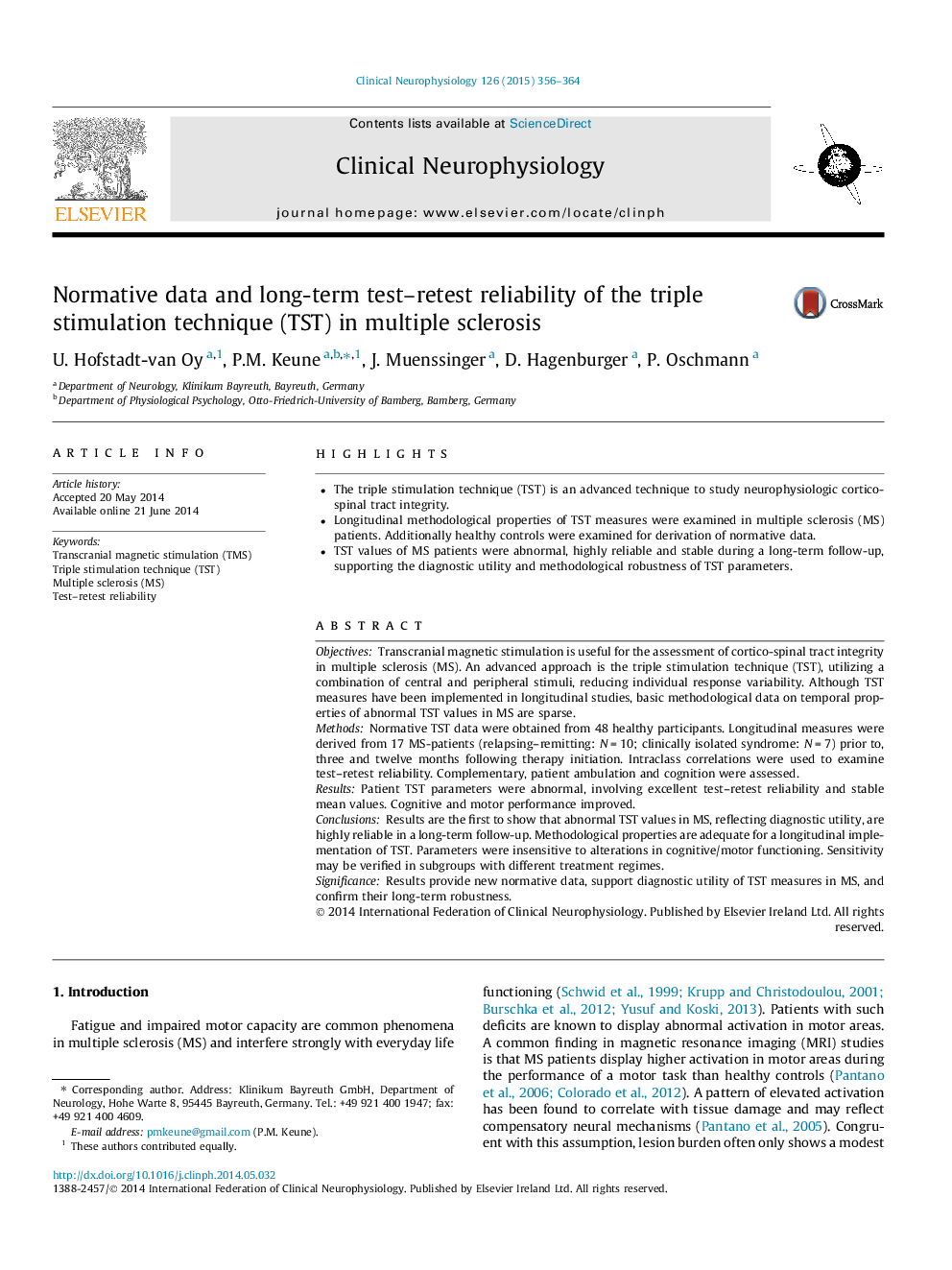| Article ID | Journal | Published Year | Pages | File Type |
|---|---|---|---|---|
| 3043079 | Clinical Neurophysiology | 2015 | 9 Pages |
•The triple stimulation technique (TST) is an advanced technique to study neurophysiologic cortico-spinal tract integrity.•Longitudinal methodological properties of TST measures were examined in multiple sclerosis (MS) patients. Additionally healthy controls were examined for derivation of normative data.•TST values of MS patients were abnormal, highly reliable and stable during a long-term follow-up, supporting the diagnostic utility and methodological robustness of TST parameters.
ObjectivesTranscranial magnetic stimulation is useful for the assessment of cortico-spinal tract integrity in multiple sclerosis (MS). An advanced approach is the triple stimulation technique (TST), utilizing a combination of central and peripheral stimuli, reducing individual response variability. Although TST measures have been implemented in longitudinal studies, basic methodological data on temporal properties of abnormal TST values in MS are sparse.MethodsNormative TST data were obtained from 48 healthy participants. Longitudinal measures were derived from 17 MS-patients (relapsing–remitting: N = 10; clinically isolated syndrome: N = 7) prior to, three and twelve months following therapy initiation. Intraclass correlations were used to examine test–retest reliability. Complementary, patient ambulation and cognition were assessed.ResultsPatient TST parameters were abnormal, involving excellent test–retest reliability and stable mean values. Cognitive and motor performance improved.ConclusionsResults are the first to show that abnormal TST values in MS, reflecting diagnostic utility, are highly reliable in a long-term follow-up. Methodological properties are adequate for a longitudinal implementation of TST. Parameters were insensitive to alterations in cognitive/motor functioning. Sensitivity may be verified in subgroups with different treatment regimes.SignificanceResults provide new normative data, support diagnostic utility of TST measures in MS, and confirm their long-term robustness.
